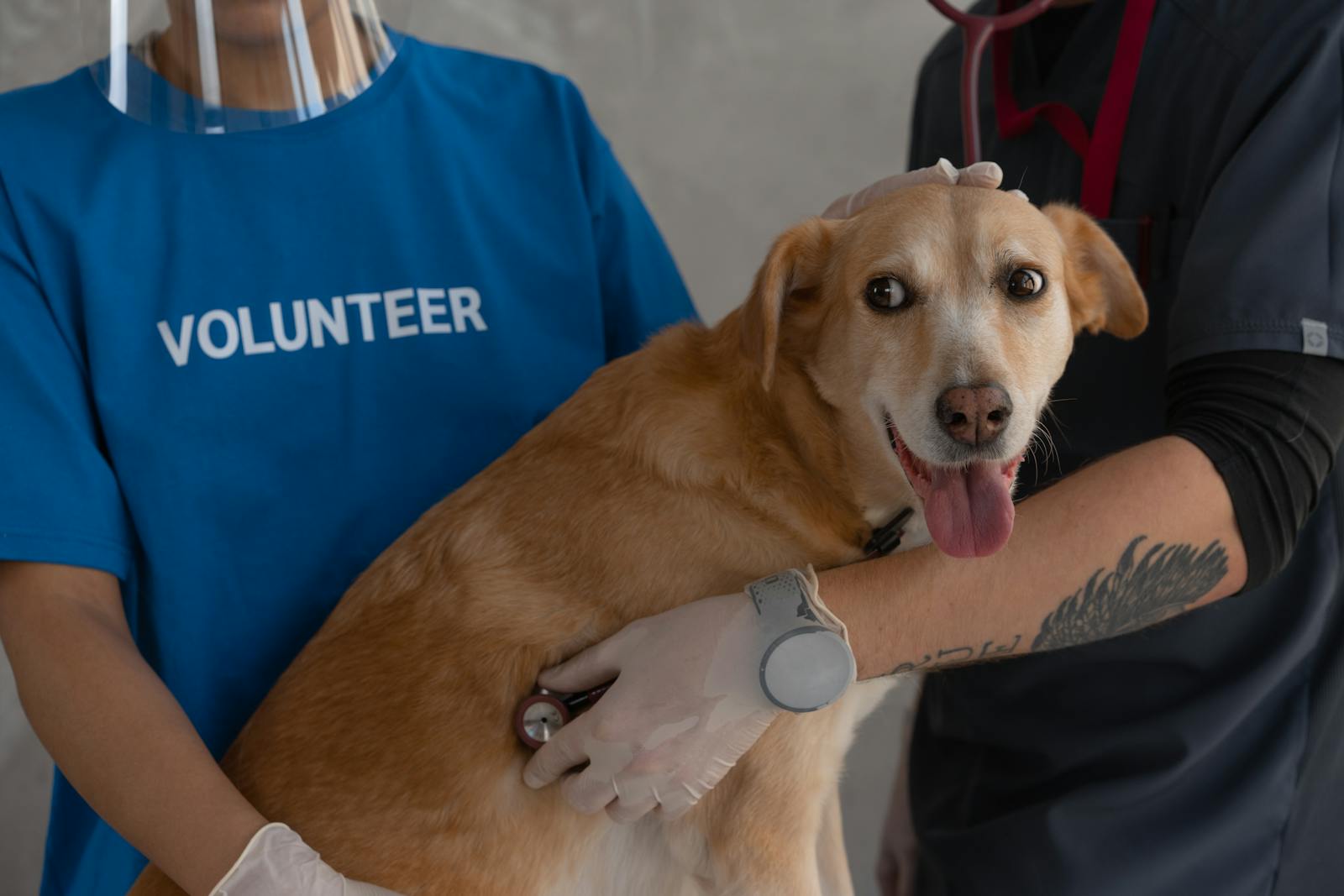As dog parents, we all want our furry companions to lead happy and healthy lives.
Recognizing potential health problems early can make a world of difference in your dog’s well-being. Early intervention not only improves outcomes but also strengthens the bond you share with your pet.
In this article, we’ll explore 10 common dog health issues and practical solutions to keep your pup in tip-top shape.
Table of Contents
1. Obesity in Dogs
Causes of Obesity
Obesity in dogs often stems from overfeeding, lack of exercise, or feeding high-calorie treats. Certain breeds are also more prone to weight gain.
Health Risks Associated with Obesity
Carrying extra weight increases the risk of diabetes, joint problems, heart disease, and a shortened lifespan.
Solutions for Maintaining a Healthy Weight
- Provide a balanced diet with portion control.
- Incorporate daily exercise, like walks or playtime.
- Avoid giving table scraps and monitor treat intake.
- Consult your vet for a weight management plan if needed.
2. Dental Diseases In Dogs
Common Dental Problems in Dogs
Dogs often suffer from plaque buildup, gum disease, and tooth decay, which can lead to painful infections.
Signs of Dental Issues
- Bad breath
- Difficulty eating
- Swollen or bleeding gums
- Loose or missing teeth
Prevention and Treatment Options
- Brush your dog’s teeth regularly using dog-friendly toothpaste.
- Provide dental chews or toys designed to reduce plaque.
- Schedule professional cleanings with your vet.
3. Parasite Infestations in Dogs
Types of Parasites
- Internal: Roundworms, tapeworms, hookworms
- External: Fleas, ticks, mites
Symptoms of Parasite Infestations
- Scratching or biting at the skin
- Visible parasites in fur or stool
- Diarrhea, vomiting, or weight loss
Prevention and Treatment Methods
- Use vet-recommended parasite preventatives.
- Regularly check your dog’s fur and skin, especially after outdoor activities.
- Maintain a clean living environment.
4. Ear Infections In Dogs
Causes of Ear Infections
Allergies, excessive moisture, and wax buildup are common culprits.
Common Symptoms
- Head shaking
- Odor from the ears
- Redness or swelling
- Discharge from the ear canal
Treatment and Prevention Strategies
- Clean your dog’s ears regularly with vet-approved solutions.
- Dry their ears thoroughly after baths or swimming.
- Seek veterinary care at the first sign of infection.
5. Skin Allergies in Dogs
Types of Skin Allergies
Dogs can experience environmental, food, or contact allergies.
Common Triggers and Symptoms
- Itchy, red, or flaky skin
- Hair loss
- Excessive licking or scratching
Effective Treatments and Prevention Tips
- Identify and eliminate allergens with the help of your vet.
- Use hypoallergenic shampoos and grooming products.
- Consider supplements like omega-3 fatty acids for skin health.
6. Arthritis and Joint Problems
Causes of Joint Issues
Aging, genetics, and injuries can contribute to arthritis or joint pain.
Symptoms of Arthritis in Dogs
- Limping or stiffness
- Difficulty climbing stairs or jumping
- Reduced activity levels
Solutions for Managing Joint Health
- Provide joint supplements (e.g., glucosamine and chondroitin).
- Maintain a healthy weight to reduce joint strain.
- Offer orthopedic bedding for extra support.
7. Digestive Issues Found In Dogs
Common Digestive Problems in Dogs
Vomiting, diarrhea, and constipation are frequent concerns.
Symptoms of an Upset Stomach
- Loss of appetite
- Abdominal pain
- Changes in stool consistency
Remedies and Prevention Tips
- Feed a consistent, high-quality diet.
- Introduce new foods gradually.
- Ensure your dog has access to clean water at all times.
8. Heartworm Disease
Overview of Heartworm Infection
Heartworms are spread through mosquito bites and can severely damage your dog’s heart and lungs.
Signs to Watch For
- Persistent coughing
- Fatigue after minimal exercise
- Difficulty breathing
Prevention and Treatment
- Use vet-prescribed heartworm preventatives year-round.
- Test annually for heartworms.
- Treatment involves a vet-supervised regimen if your dog is infected.
9. Canine Diabetes
Causes of Diabetes in Dogs
Obesity, genetics, and autoimmune disorders can lead to diabetes.
Symptoms and Diagnosis
- Increased thirst and urination
- Weight loss despite a good appetite
- Lethargy
Managing Diabetes in Dogs
- Administer insulin as prescribed by your vet.
- Feed a consistent diet with regulated portions.
- Monitor blood sugar levels regularly.
10. Urinary Tract Infections (UTIs)
Common Causes of UTIs
Bacterial infections, bladder stones, or underlying health conditions can cause UTIs.
Symptoms to Identify
- Frequent urination
- Straining or discomfort while urinating
- Blood in the urine
Treatment and Prevention
- Provide plenty of fresh water to encourage urination.
- Keep your dog’s urinary area clean.
- Seek veterinary care for proper diagnosis and antibiotics if necessary.
Tips for Preventing Common Dog Health Issues
Importance of Regular Vet Visits
Routine checkups are essential for maintaining your dog’s overall health. These visits allow your veterinarian to identify potential health issues before they become serious, saving your dog from unnecessary discomfort and you from costly treatments.
Regular visits also ensure your dog stays up-to-date on vaccinations, parasite prevention, and dental cleanings. By monitoring your pet’s weight, diet, and behavior over time, your vet can provide personalized recommendations to keep your furry friend in peak condition.
Maintaining a Balanced Diet
Feeding your dog a high-quality diet tailored to their specific needs is one of the most important aspects of their care.
A balanced diet provides essential nutrients that support their immune system, coat health, digestion, and energy levels. Puppies, adults, and senior dogs have different dietary requirements, as do dogs with certain health conditions.
Always choose food that is appropriate for their age, size, and activity level. Additionally, avoid overfeeding and stick to recommended portion sizes to prevent obesity. If you’re unsure what to feed your dog, consult your vet for guidance on the best options.
Exercise and Mental Stimulation
Dogs need regular physical activity to stay healthy, just like humans. Daily exercise helps maintain a healthy weight, improves cardiovascular health, and strengthens muscles and joints. Activities like walking, running, playing fetch, or even swimming can keep your dog physically fit.
Mental stimulation is equally important. Without it, dogs can become bored, anxious, or destructive. Engage their minds with puzzle toys, training sessions, or games like hide-and-seek. Breed-specific activities, like agility training for energetic dogs or scent games for hounds, can also provide mental and physical challenges. A well-exercised and mentally stimulated dog is a happy dog!
When to Consult a Veterinarian
Warning Signs You Shouldn’t Ignore
- Sudden changes in behavior or appetite
- Persistent vomiting or diarrhea
- Difficulty breathing or walking
Building a Good Relationship with Your Vet
Establishing a strong and trusting relationship with your veterinarian is vital for your dog’s health and well-being. Regular visits not only allow your vet to become familiar with your dog’s medical history and behavior but also build a sense of trust between you, your dog, and the vet. This trust is crucial during emergencies or when making important decisions about your dog’s treatment.
When you maintain open communication with your vet, it becomes easier to discuss concerns, ask questions, and follow through with personalized care plans. A good relationship also ensures your dog feels more comfortable during checkups, reducing stress and making visits smoother for everyone involved. Over time, this partnership helps you provide the best possible care for your furry friend.
Conclusion
Your dog relies on you to keep them healthy and happy. By staying informed and proactive, you can prevent or manage many common health issues.
Regular vet visits, a balanced diet, and an active lifestyle are key components of ensuring your dog’s well-being. Always be attentive to changes in your dog’s behavior or physical condition, as these can often signal underlying health concerns.
Remember, investing time and effort into your dog’s health not only enhances their quality of life but also deepens the special bond you share. A healthy dog is a happy dog, and their joy will always reflect the care and love they receive from you. So, take these steps today to give your furry friend the best life possible!
FAQs
How often should I take my dog to the vet?
At least once a year for routine checkups, but senior dogs or those with health issues may need more frequent visits.
What is the best diet for a healthy dog?
A balanced diet that meets your dog’s age, size, and activity level is best. Consult your vet for specific recommendations.
How can I tell if my dog is in pain?
Look for signs like limping, whimpering, or changes in behavior and appetite.
Are over-the-counter parasite preventatives effective?
Some are, but vet-recommended products are often safer and more effective.
What are some natural remedies for common dog health problems?
For minor issues, remedies like pumpkin for digestion or coconut oil for skin can help, but always check with your vet first.






Pingback: 10 Powerful Ways to Boost Your Dog’s Gut Health Naturally
Pingback: Puppy vs. Adult Dog Food: When to Make the Switch